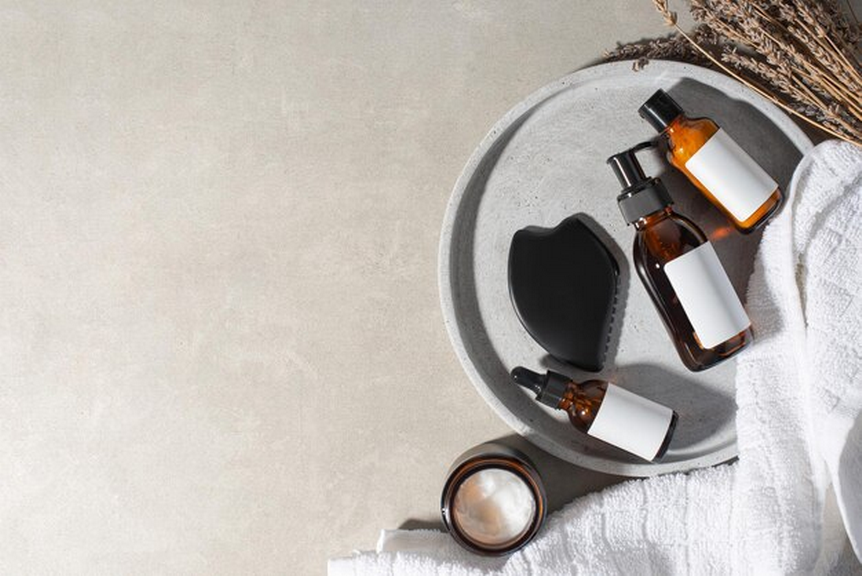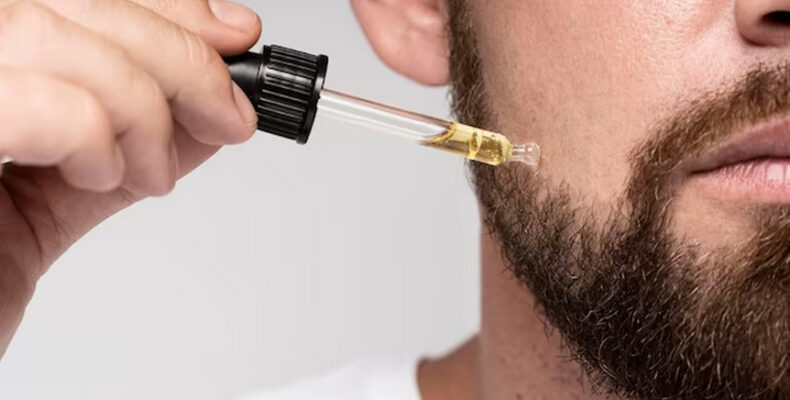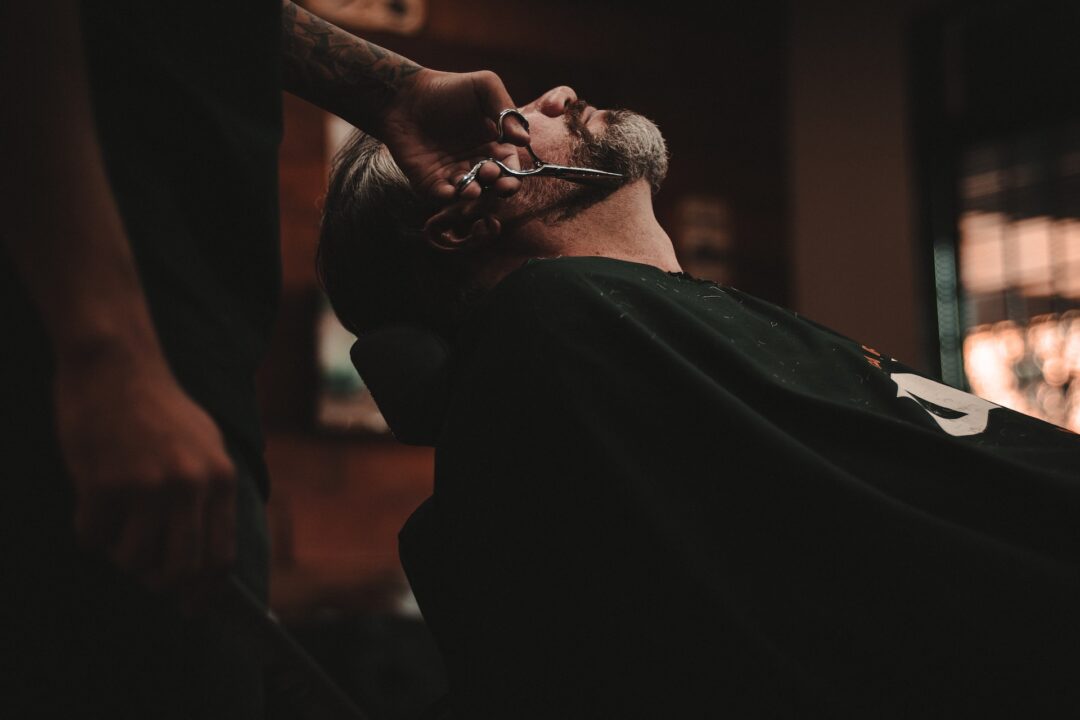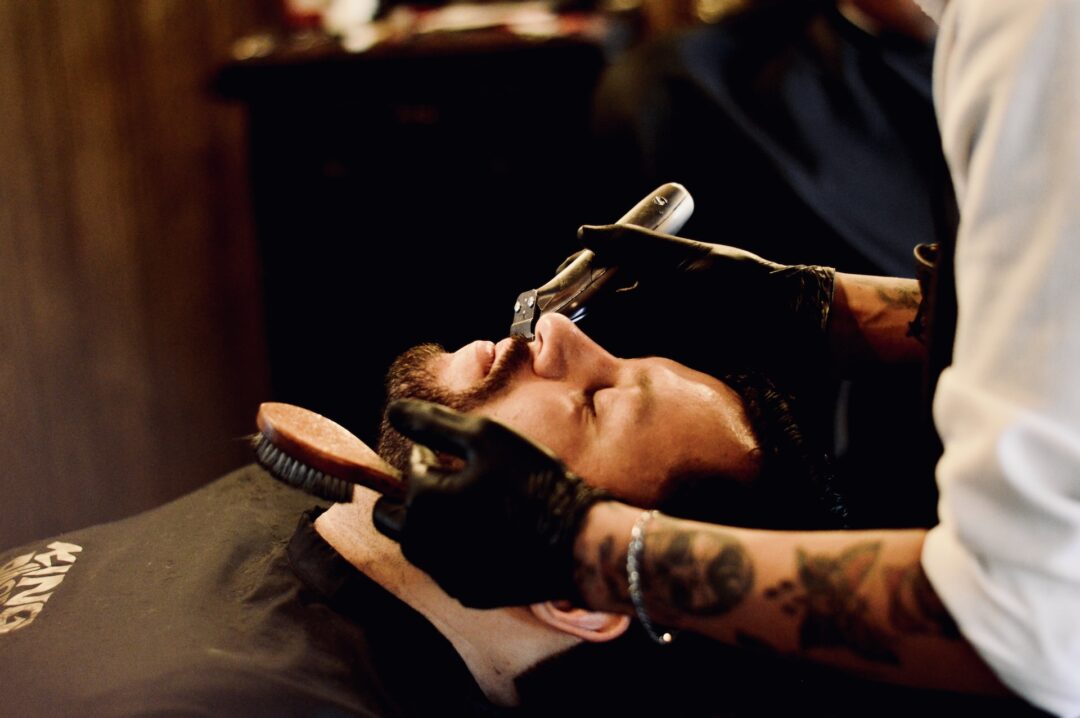Beards have been an emblem of masculinity and sophistication for centuries. But in today’s world, maintaining that lush facial forest isn’t merely about letting it grow wild and free. It requires tender love and care. Enter the game-changer: beard oil. You may have wondered, “what do beard oils do?” or “how can I make beard oil at home?” Let’s dive deep into the world of beard oil and answer these pressing queries!
The Magic Behind Beard Oils
At the heart of every great beard is, quite possibly, a good beard oil. But what does beard oil do for you? Let’s break it down:
Moisturization
Beard oil helps keep your beard soft and supple by locking in moisture. Itchy, flaky skin under your beard is uncomfortable and looks bad. Beard oils are excellent in moisturizing the skin beneath your beard. The procedure is as follows:
| Benefit | Explanation |
| Prevents Dryness | Beard oils prevent your skin from becoming excessively dry, reducing the risk of itchiness and flakes. |
| Soothes Irritation | The oils soothe any irritation caused by the growth of coarse beard hair against your skin. |
| Promotes Skin Health | By moisturizing the skin, beard oil promotes overall skin health, leaving it smooth and supple. |
Conditioning
Beard hair can often become rough and unruly, making it difficult to manage and maintain. Beard oils are excellent at conditioning your facial hair, making it softer, more manageable, and visually appealing. The conditioning benefits of beard oils include:
| Benefit | Explanation |
| Softens Beard Hair | The oils soften the coarse texture of beard hair, making it feel smoother and more comfortable. |
| Reduces Frizz | Conditioning properties help reduce frizz and flyaways, ensuring your beard looks neater and more well-kept. |
| Adds Shine | A well-conditioned beard has a natural shine that enhances its appearance, giving it a healthy and groomed look. |
Styling
Beyond moisturization and conditioning, beard oils also play a significant role in styling your beard. They make it easier to shape and groom your facial hair to your desired look. Here’s how beard oils aid in beard styling:
| Benefit | Explanation |
| Improved Manageability | Beard oils make your facial hair more manageable, allowing you to comb, brush, and style it with greater ease. |
| Taming Flyaways | They help in taming unruly hair and keeping it in place, resulting in a more polished and well-maintained beard. |
| Enhanced Beard Control | Beard oils provide the necessary hold for styling, making it simpler to achieve the beard style you desire. |
Fragrance
Many beard oils come infused with pleasant fragrances, which is an additional benefit beyond their functional aspects. These fragrances can keep your beard smelling fresh throughout the day. Here’s what you should know about the fragrance aspect of beard oils:
| Benefit | Explanation |
| Pleasant Aroma | Beard oils often incorporate essential oils with pleasant scents, providing a subtle, all-day fragrance to your beard. |
| Masking Unwanted Odors | These fragrances can help mask any unwanted odors that may accumulate in your beard, such as food or smoke smells. |
| Enhanced Overall Grooming | The fragrance component of beard oils adds to your overall grooming routine, leaving you feeling fresh and confident. |
What Is Grotein in Beard Oil?

Beard oil has emerged as a staple in the grooming routines of many men, promising to transform unruly facial hair into a well-maintained masterpiece. Yet, among the myriad of ingredients and terminology associated with beard oils, the term “grotein” may have piqued your curiosity. However, it’s crucial to clarify that “grotein” is not a recognized ingredient in beard oils. This seeming enigma may be attributed to a common misspelling or misunderstanding regarding the actual components present in these grooming products.
To truly comprehend what constitutes a beard oil and why “grotein” doesn’t belong in the mix, we must delve into the nuanced composition of this grooming elixir.
Carrier Oils: The Backbone of Beard Oils
Carrier oils are crucial components of any beard oil formula, as they supply vital nutrients, moisturization, and overall nourishment to both the beard hair and the underlying skin. The carrier oils serve as the foundation of every beard oil product, carefully selected for their distinct characteristics. Let’s examine many widely used carrier oils.
- Jojoba Oil: Jojoba oil is a popular choice due to its remarkable similarity to the natural oils produced by our skin. This makes it an ideal moisturizer for both the beard and the skin beneath, effectively preventing dryness and promoting hair health;
- Argan Oil: Argan oil, often referred to as “liquid gold,” is prized for its richness in vitamins, antioxidants, and fatty acids. It is known to nourish and condition the beard, taming frizz and adding a natural shine;
- Coconut Oil: Coconut oil is renowned for its deep hydration properties. It works wonders in preventing beard dryness, reducing flakiness, and providing a healthy sheen to the facial hair;
- Sweet Almond Oil: Sweet almond oil is a gentle yet effective conditioner that softens the beard and mitigates itching and irritation. Its mild, nutty scent also complements various essential oil fragrances.
Essential Oils: Aromatic Elegance and Potential Benefits
Beyond carrier oils, essential oils play a pivotal role in beard oil formulations. These oils contribute to the overall fragrance profile of the product, but they also bring their unique therapeutic qualities to the table. Here, we explore the most commonly used essential oils in beard oils:
- Lavender: Lavender essential oil is known for its calming, floral aroma. It can have a soothing effect on the skin and beard, making it a popular choice for those seeking relaxation during their grooming routine;
- Cedarwood: Cedarwood essential oil offers a woody, earthy scent. In addition to its aromatic qualities, it is believed to promote hair growth and help maintain a healthy scalp;
- Sandalwood: Sandalwood essential oil is prized for its warm and rich fragrance. It is often used in beard oils to combat dryness and add a touch of sophistication to the aroma profile;
- Peppermint: Peppermint essential oil lends a refreshing, minty scent to beard oils. Beyond its invigorating fragrance, it may stimulate hair follicles, potentially aiding in beard growth.
DIY: How to Make Beard Oil at Home and to Sell
Creating your own beard oil can be a gratifying and creative endeavor, offering you the opportunity to personalize your grooming routine or potentially start a small business. This comprehensive guide will take you through every step, providing in-depth insights into the world of beard oil production.
Gather Essential Ingredients
To embark on your journey to create high-quality beard oil, you’ll need to start with the right ingredients. Here’s a detailed breakdown:
- Base Oil Selection: The base oil forms the core of your beard oil, offering essential moisturizing and conditioning properties. Your choice of base oil can significantly impact the final product’s texture and benefits. Here are some common options:
| Base Oil | Characteristics |
| Jojoba Oil | Mimics skin’s natural oils, moisturizes, promotes hair health. |
| Argan Oil | Rich in vitamins and antioxidants, nourishes and tames frizz. |
| Coconut Oil | Deeply hydrates, prevents dryness, adds shine. |
| Sweet Almond Oil | Conditions, reduces itching and irritation. |
- Essential Oils for Fragrance and Benefits:
Essential oils not only provide delightful fragrances but also contribute potential therapeutic advantages. Different essential oils offer distinct scents and benefits. Here are some popular options:
| Essential Oil | Fragrance and Benefits |
| Cedarwood | Earthy, promotes hair growth. |
| Lavender | Floral, soothing for skin and senses. |
| Sandalwood | Warm, rich, combats dryness. |
| Peppermint | Refreshing, stimulates hair follicles. |
- Vitamin E Oil (Optional but Recommended): Vitamin E oil serves as a natural preservative, extending the shelf life of your beard oil. Moreover, it offers additional skin benefits, making it a valuable addition to your concoction.
Blend It Up
With your ingredients in hand, it’s time to create your unique beard oil blend. Here’s a detailed step-by-step process:
- Start with 1 ounce (30 ml) of your chosen base oil in a clean, dry container. The quantity can be adjusted based on how much beard oil you intend to produce;
- Add your selected essential oil(s) to the base oil. The number of drops can vary depending on your desired fragrance strength. As a general guideline, 5-10 drops of essential oil per 1 ounce of base oil is a good starting point;
- For enhanced nourishment and skin benefits, incorporate a few drops of Vitamin E oil. About 2-3 drops per 1 ounce of base oil should suffice;
- Thoroughly mix the oils together using a clean stirrer or pipette to ensure uniform distribution of fragrance and skin-enhancing properties.
Storing Your Beard Oil
Proper storage is crucial to maintain the integrity and efficacy of your homemade beard oil. Follow these best practices:
- Utilize a dark glass dropper bottle for storage. Dark glass, such as amber or cobalt blue, is preferred because it protects the oil from exposure to light, which can degrade its quality over time;
- Seal the bottle tightly to prevent air from entering, which could lead to premature oxidation;
- Store your beard oil in a cool, dark place, away from direct sunlight and extreme temperatures. A bathroom cabinet, linen closet, or a cool, dry pantry serves as an ideal storage location.
Advanced Customization Options
While the basic recipe above serves as an excellent starting point, you can take your beard oil crafting to the next level by exploring advanced customization options:
- Blending Base Oils: Experiment with different combinations of base oils to create a unique texture and scent profile;
- Custom Fragrance Blends: Mix multiple essential oils to create your signature scent, catering to your specific preferences;
- Specialty Oils: Explore the use of specialty oils like castor oil for additional benefits such as promoting beard growth;
- Natural Colorants: Add natural colorants like beetroot powder or turmeric for aesthetic appeal.
Considerations for Selling
If your goal is to turn your homemade beard oil into a profitable venture, there are several important considerations:
- High-Quality Ingredients: Source your base oils, essential oils, and Vitamin E oil from reputable suppliers to ensure the highest quality for your product;
- Clear Labeling: Create professional and informative labels for your product. Include a list of ingredients, usage instructions, and any necessary warnings;
- Product Testing: Conduct thorough testing to ensure your beard oil meets quality standards and is safe for use. This includes checking for skin sensitivity and determining the product’s shelf life;
- Marketing and Branding: Develop a unique brand identity, including a compelling story behind your product, to connect with potential customers;
- Legal Considerations: Familiarize yourself with local and regional regulations regarding the sale of cosmetic products.
Comparison of Beard Oils, Balms, Waxes, and Serums

When it comes to beard grooming, there is a wide range of products available, each with its own unique benefits and drawbacks. Beard oils, balms, waxes, and serums are some of the most popular options. In this detailed comparison, we will delve into the characteristics, pros, and cons of each product to help you make an informed decision about which one suits your beard grooming needs best.
Beard Oils
Beard oils are a staple in the grooming routine of many bearded individuals. They are typically composed of carrier oils and essential oils and are designed to moisturize the beard and the skin underneath. Here’s a breakdown of their pros and cons:
| Pros | Cons |
| 1. Hydration: Beard oils provide deep hydration, preventing dryness and itchiness. | 1. Light Hold: They offer minimal hold, making them less suitable for styling purposes. |
| 2. Softening: They soften the beard hair, making it more manageable and reducing tangles. | 2. Limited Styling: Beard oils do not provide the strong hold needed for intricate beard styles. |
| 3. Nutrient-Rich: Many beard oils contain essential oils that offer additional benefits like anti-inflammatory and antibacterial properties. | 3. Not Suitable for Heavy Beards: They may not provide enough control for thicker or longer beards. |
| 4. Quick Absorption: They absorb quickly, leaving no greasy residue. | 4. Frequent Application: Regular reapplication is often required, especially in dry climates. |
Beard Balms
Beard balms are thicker and provide more hold compared to beard oils. They are a combination of oils and butters along with wax for hold. Here’s an analysis of their pros and cons:
| Pros | Cons |
| 1. Hold and Control: Beard balms offer better hold, making them suitable for shaping and styling your beard. | 1. Thicker Consistency: The thicker texture may feel heavy or waxy for some users. |
| 2. Moisturizing: They provide moisture to the beard and skin while offering a matte finish. | 2. Less Shine: Balms provide less shine compared to beard oils. |
| 3. Longer-Lasting: Balms tend to last longer on the beard, requiring fewer applications throughout the day. | 3. Not Ideal for Light Styling: For those seeking a more natural look, balms might be excessive in terms of hold. |
| 4. Tame Flyaways: They are effective at taming flyaway hairs and reducing frizz. | 4. Not Suitable for Intense Hold: If you need extreme hold, waxes might be a better choice. |
Beard Waxes
Beard waxes are the go-to choice for individuals looking for maximum hold and control. They contain a higher wax content compared to balms. Here are their pros and cons:
| Pros | Cons |
| 1. Extreme Hold: Waxes provide the strongest hold, making them ideal for shaping intricate beard styles. | 1. Stiffness: The high wax content can make the beard feel stiff and less natural. |
| 2. Long-Lasting: They last throughout the day, maintaining your chosen style. | 2. Greasy Look: Some waxes can leave a greasy appearance if overused. |
| 3. Flyaway Control: Effective at taming unruly hairs and keeping them in place. | 3. Not Suitable for Everyday Use: Waxes can be heavy and may not be needed for everyday grooming. |
| 4. Weather Resistance: Waxes offer excellent protection against wind and harsh weather conditions. | 4. Difficult to Wash Out: They can be challenging to wash out, requiring a thorough cleaning. |
Beard Serums
Beard serums are a relatively newer addition to the grooming market, formulated with a focus on nourishing and promoting beard growth. Here are their pros and cons:
| Pros | Cons |
| 1. Growth Support: Serums often contain ingredients like biotin and caffeine to stimulate beard growth. | 1. Limited Styling: They lack the hold and styling properties of balms and waxes. |
| 2. Nourishment: Serums deeply nourish both the beard hair and underlying skin. | 2. Lightweight: They are typically lightweight and may not provide sufficient moisture for dry beards. |
| 3. Reduced Itchiness: They can help reduce beard itch and irritation, especially during the early growth stages. | 3. Not for Intense Styling: Serums are primarily for beard health rather than styling. |
| 4. Shine: Many serums leave a subtle shine on the beard, enhancing its appearance. | 4. Specialized Use: They are best used in conjunction with other products for a complete grooming routine. |
Conclusion
A great beard is more than just a style statement; it’s a reflection of care and commitment. With insights on what beard oils do for you and how to make beard oil at home or to sell, you’re now equipped to make informed choices. So whether you’re rocking a stubble or a lumberjack look, let beard oils work their magic and elevate your beard game!
FAQs
What do beard oils do?
Beard oils primarily moisturize the skin beneath the beard, soften the beard hair, assist in styling, and can provide a pleasant fragrance.
How often should I apply beard oil?
Ideally, once a day after showering or washing your face. This ensures that both your beard and the skin underneath remain moisturized and healthy.
How to make beard oil to sell?
Begin by sourcing high-quality base and essential oils. Mix them in appropriate ratios, considering fragrance and skin benefits. Bottle them in dark glass dropper bottles and ensure proper labeling.
Can I make beard oil at home for personal use?
Absolutely! Many enthusiasts prefer crafting their own unique blend. It gives you control over the ingredients and allows for customization.
What does beard oil do for you?
Apart from moisturizing and conditioning benefits, beard oil can reduce itchiness, prevent beard dandruff, and make the beard easier to style.
What is grotein in beard oil?
Grotein is a blend of proteins and peptides. It’s believed to promote hair growth and strength, making your beard appear healthier and more robust.



